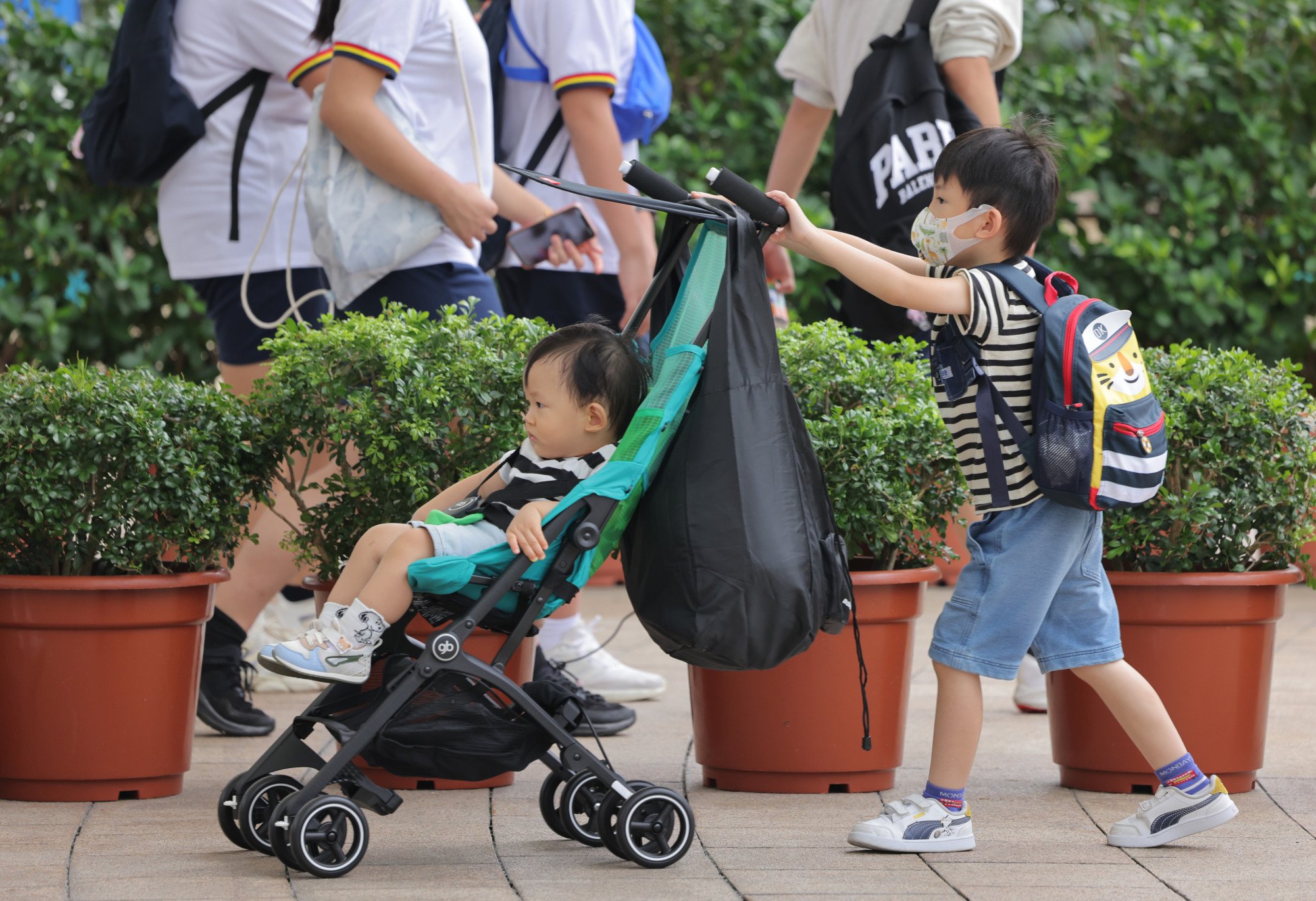
Hong Kong gives out HK$35 million in baby bonuses, but experts say raising birth rate requires policy rethink on marriage, IVF
- Deputy Chief Secretary Warner Cheuk says authorities have already approved over 16,000 applications for HK$20,000 handouts since policy rolled out last October
- But some experts call for policy shake-up that reflects changing attitudes toward marriage, while others urge increased access to IVF treatments
Hong Kong authorities have distributed more than HK$35 million (US$4.5 million) in baby bonuses since last October, but experts have said boosting the birth rate requires policies that reflect changing attitudes toward marriage and in vitro fertilisation (IVF) treatments.
The government as of Thursday had approved over 16,000 applications for the HK$20,000 handout since the policy rolled out, Deputy Chief Secretary Warner Cheuk Wing-hing said.
Speaking at a University of Hong Kong-hosted panel on the low birth rate, Cheuk also said more than 15,300 of the successful applicants had already received the sum.
“Despite the government’s budget deficit, we rolled out the baby bonus, which is a major financial commitment,” he said.
“This is an important breakthrough and fully demonstrates the government prioritising solving the problems related to the low birth rate, and the urgency of the matter.”
The city first recorded a negative natural population growth in 2020, with its total fertility rate dropping to 701 live births per 1,000 women in 2022.
The policy is expected to last for three years.
Other family friendly initiatives unveiled last October included giving households with newborns priority to purchase their government-subsidised flats, with authorities increasing the number of homes set aside for them by 10 per cent.
Waiting times among such families for public rental flats were also reduced by one year, effective from April of this year, under the policy push.
Cheuk on Friday described the bonus as a thoughtful gift, or “red packet”, from the government to couples with newborns.
“We never expected that giving out the bonus would directly make more people want to have kids, but the policy has successfully raised awareness and generated discussions about the issue,” he said.
The academic noted the study found more women preferred to marry later in their lives and be child-free.
The top reasons among women for remaining unmarried included the “joy of singlehood”, financial independence and an inability to find a suitable partner.
“This shows women want personal freedom and don’t want to be trapped by marriage, and that women no longer need to get married to enjoy financial stability,” Yip said.
In terms of top deterrents to having children, the most popular reasons among women were a lack of childcare support and their financial situation.
The academic said policymakers should create a comprehensive population strategy that addressed such obstacles, to help create a more child-rearing-friendly environment that encouraged prospective parents.

Ernest Ng Hung-yu, a clinical professor of gynaecology at the university’s medical faculty, said the government should also make IVF treatments more accessible under the public healthcare system and work on reducing waiting times for procedures.
The median age of female patients at the city’s fertility clinics was 35 years old, adding that demand was increasing but time was running out for patients.
“Only three public hospitals offer IVF services and the waiting time can take up to 20 to 80 weeks to see a specialist, almost two years, similar to other outpatient services at the Hospital Authority,” he said.
“As a female patient ages, the chances of pregnancy decrease. They cannot wait for so long.”
Ng called for more promotion efforts on social media to raise awareness about the different fertility treatments, as well as a simplified triage and referral process for IVF options.

